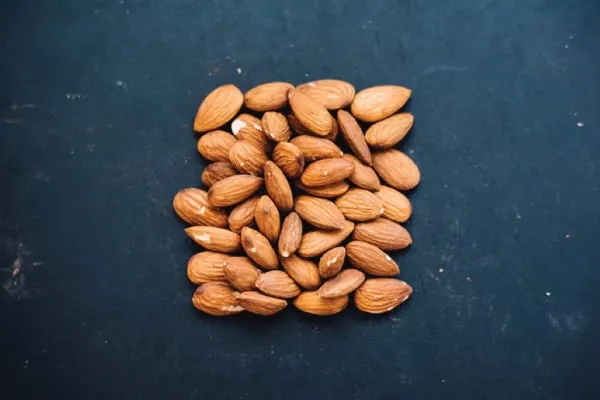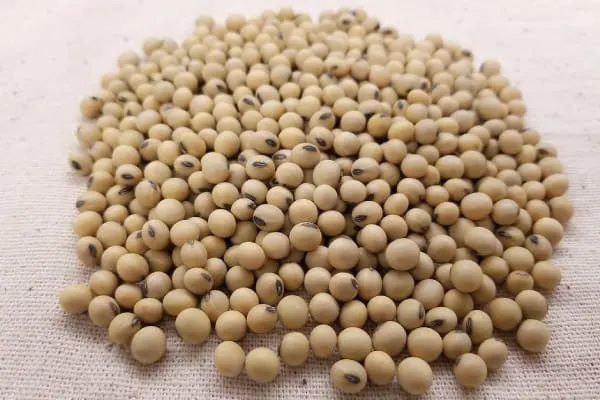Whether puppies can consume fresh milk is a frequently asked question posed by owners on a daily basis.
While many may assume that milk is beneficial for our furry friends, the reality might be different. In this article, you’ll find comprehensive information about puppies and milk, including various types and their implications.
Yes, puppies can drink fresh milk, but only in small amounts and on a few occasions. Most puppies suffer from some level of lactose intolerance so milk would most likely upset the digestive system.
Table of Contents
Can puppies drink fresh milk?
The most common type of milk we drink is fresh cow’s milk. Therefore, this is what most of us likely think to give our puppies.
Although puppies can technically drink cow’s milk, it may not be the best thing for them to be sipping on.
Due to lactose causing many issues for the majority of breeds, milk should be given in small quantities and on limited occasions.
Ideally, it’s best to avoid giving your puppy milk and opt for an alternative outlined below.
In an article on PetMD
“Most dogs can drink cow’s milk or goat’s milk, however some dogs may be allergic or lactose intolerant,” cautions Dr. Stephanie Liff, DVM and owner of Pure Paws Veterinary Care of Clinton Hill Brooklyn, N.Y.
PetMD on cow milk
All puppies and dogs are different. Some breeds are more prone to allergies than others, just like the ability to digest lactose. This also ranges on a dog-to-dog basis.
If your particular breed suffers from allergies or the parents to your puppies have allergies, then you should avoid all dairy from the beginning.
Are puppies lactose intolerant?
Some puppies will tolerate lactose better than others. Every puppy will be different and it ultimately depends on how much of the lactase enzyme the puppy continues to produce after being weaned off the mother’s milk.
Before puppies are weaned off of their mother’s milk, they actively produce an enzyme called lactase. Lactase is responsible for breaking down a natural sugar called lactose, which is found in milk.
While all puppies will initially produce the much-needed enzyme, lactase, the production will typically slow down after they’ve weaned off their mother’s milk. The subsequent lack of lactase makes it harder to breakdown lactose, which in most cases, leads to lactose intolerance.
Milk alternatives for puppies
Puppies in normal circumstances will receive all the nutrition they need from their mother for the first four weeks after being born. The mother’s milk has everything puppies need and there is no good reason to feed them anything else.
In an article from the American Society for the Prevention of Cruelty to Animals if the mother is ill or not present, or the puppies are taken as orphans, it may be necessary to use a commercial milk replacer.
Veterinarians recommend using a milk replacer that has a high amount of essential fatty acids, calcium, and amino acids. Below I give some good examples of milk replacers but you should always consult your local vet if this is the route you need to go.
As well as buying a commercial milk replacer you can also make your own homemade version, which I will cover below.
PetAg Esbilac Puppy Milk Replacer
This is a highly recommended, inexpensive powder milk replacer for puppies that you can find on Amazon. This formula closely matches the nutritional breakdown that the mother has in her milk. Click here to see full description on Amazon.com
Key Benefits
- All-natural with no preservatives
- For puppies newborn to 6 weeks of age
- Vitamin and mineral enriched
- Easily digestible
- Highly palatable
Homemade milk replacer for puppies
Although a homemade milk replacer will not closely match the nutritional breakdown like a commercial milk replacer would, it can be good if the commercial option isn’t available to you.
You can use a homemade milk replacer temporarily until you are able to get hold of a more suitable commercial option.
It’s best to stick to a recommended formula, Below is a simple one from Greens Fork Animal Hospital. Source
Simply combine all of the ingredients in a blender and blend until smooth. Keep in the refrigerator for future use.
- 12 oz can of unsweetened evaporated milk
- 13 oz of boiling water
- 1 jar of beef baby food
- 8 oz unflavored yogurt
- 2 cooked egg yolks
Is milk good for dogs?
Maybe you’ve already given your dog milk without experiencing any negative side effects.
It’s possible that your dog isn’t lactose intolerant. In which case, can milk be good for dogs?
If your dog does not suffer from lactose intolerance then you can give him a small amount every so often, without much harm. Milk is a good source of protein, fat, and calcium as well as vitamins like D and B12.
In some cases milk can actually work as a treat, depending on how much your furry friend likes it.
If you know that your dog particularly enjoys milk, it’s ok to offer him some every now and then, but it’s still a concern and it should be limited.
It’s also worth remembering that your dog receives all the nutrients, vitamins and minerals from his normal food and milk will not be that beneficial to his health.
Can puppies drink lactose-free milk?
So far the problem with milk has been because of lactose. Naturally, you may be wondering if lactose-free milk will be ok? surely?… Well, not really. Let me explain.
While there will be fewer gastrointestinal issues compared to cow’s milk it still doesn’t really make much sense to be giving your pup lactose-free milk. The calcium will be such a small amount, that it won’t benefit his health in a significant amount.
Your puppy would be just as good to drink some fresh water, or if he does not have access to his mother’s milk, then a well-known milk replacer is the next best thing.
Can puppies drink almond milk?

Almond milk is one of the most popular non-dairy alternatives on the market and if your puppy doesn’t digest lactose, will he be ok with almond milk? Let’s find out.
Almond milk is plant-based, however, it is made with nuts, and some nuts are toxic to puppies and dogs. While veterinarians state that almonds are not particularly dangerous, other nuts like macadamia, are highly toxic.
Dr. Merliza Cabriles wrote for the Dog Health Coach that dogs can technically drink almond milk but it is not recommended. You also have to watch out for the additional ingredients which could be dangerous for your dog.
To sum it up, it’s best to play it safe and avoid giving your puppy almond milk, although, in small amounts on very few occasions, it shouldn’t cause much harm. Always check the ingredients used and consult a professional.
Can puppies drink soy milk?

Like almond milk, soy milk is plant-based. However, there is a significant nutritional contrast between the two.
Soybeans are one of the few healthy sources of complete proteins and are considered healthy for dogs and cats. In-fact a lot of commercial dog food and dog treats use soy as an alternative source of protein and even consider it to be healthier over animal protein.
Now that we know soy is used very frequently in edible dog products, we can confirm that it is likely not to cause harm to your dog or puppy.
However, you must always be careful of additional ingredients in shop-bought soy milk. Additional ingredients like additives, preservatives, nuts, chocolate, would make it unsafe.
This is a healthier option to go for over almond milk but again, it is recommended to reserve soy milk only for a small treat.
This is original content produced and published by My Happy Husky | www.myhappyhusky.com | If this content appears on any other website or platform then it is not the original and action will be taken.
Should puppies drink milk or water?
Right from birth, your puppy’s hydration needs will be satisfied through his mother’s milk. In general, puppies feed on their mother’s milk for the first four weeks after being born.
As your puppy starts to wean off from the mother’s milk and starts to eat solid food, he’ll start to need fresh water.
According to the American Kennel Club, puppies need around a one-half cup of water every two hours.
Once your pup has been completely weaned on to solid food he will need slightly more water. An older puppy will require between a one-half ounce and one ounce of water per pound of body weight. For example, if your puppy weighs 40lbs he’ll need somewhere between 20-40 ounces of water per day.
Always monitor your puppy to make sure he is receiving adequate water.
Summary
Your original question was whether or not puppies can drink fresh milk. The answer, technically yes, but ideally, it should be avoided. Most puppies are lactose intolerant and will not digest dairy very well.
Your puppy should begin his life on his mother’s milk, then move on to freshwater as he starts to wean onto solid foods. If in the event the mother is not available to give milk. You should use a recommended milk replacer, which is nutritionally close to the mother’s milk.
Disclaimer
The advice given in this article is for educational purposes only and does not constitute professional advice in any context. Before making any decisions that may affect the health and/or safety of your dog, you should always consult a trained veterinarian in your local area. For the FULL disclaimer Visit HereCopyright Notice: The content produced and published on My Happy Husky is unique and original. My Happy Husky makes an active effort to search for plagiarized content using plagiarism detection software. If plagiarized content is found, action will be taken.
